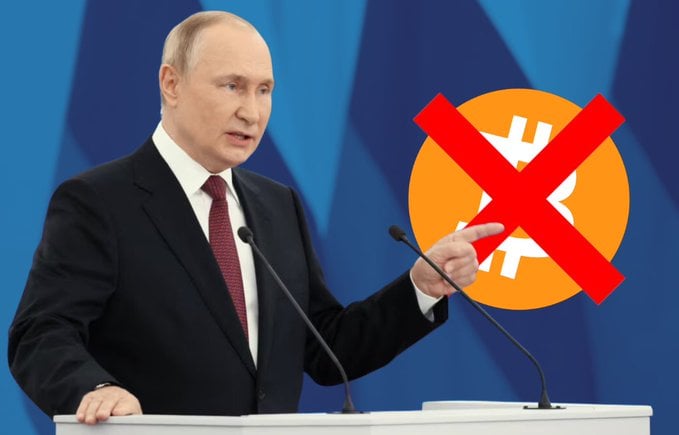Russian authorities have declared that 10 regions of the country will halt cryptocurrency mining for the next six years, due to energy shortage and strategic financial plans. The restrictions will be starting from January 1, 2025, and lasting up to March 15, 2031, and implemented in areas with high demand and different electricity rates.
Six-Year Ban on Crypto Mining Announced
The ban will affect areas such as Dagestan, Chechnya, the Donetsk and Lugansk People’s Republics. Equally, special limitations will be imposed in some regions of Irkutsk and Zabaikalsky during the agreed maximum loading on the electricity networks in the cold seasons. This was according to a report by the TASS Russian News Agency.
According to the officials, the decision was made to adapt to the needs of certain zones and correct the issues with prices. The energy sector expert Sergey Kolobanov pointed out that when the electricity price is kept low in some oblasts, the prices for it are higher for other customers. The positional change of the electricity pricing system was also supported by a regional policy specialist Vladimir Klimanov, who stressed the need for equal prices in the country.
Updated Crypto Mining Regulations
It has also witnessed the switches in legal factors controlling cryptocurrency mining in its area. It has been legal since November 2024, but it still has to be additionally registered with the Federal Tax Service (FTS). Nevertheless, miners using less than 6000 kWh monthly do not pay for power, which protects small mining operations.
This registration system is hoped to stabilize the sector and at the same time respond to criticisms of unregulated mining activities resulting in regional energy shortages.
Bitcoin Strategic Reserve Proposal Advancement
The mining ban occurred at the same time when there was debate over the formation of the Bitcoin Strategic Reserve to address risks associated with conventional forex reserves. Currently, the Russian State Duma member Anton Tkachev has suggested the adoption of Bitcoin as a structurally, independent financial tool, especially for the country hardy facing inflation and foreign restrictions.
In response to the second question, Tkachev averred that Bitcoin itself is shielded from geopolitical risks and other instabilities since is an independent system from the centralized modes. Such an approach reflects Russia’s changed view of digital currencies as instruments for enhancing financial stability.
New Crypto Tax Law Enacted
Moreover, Russia has recently introduced a crypto taxation law Aside from the aforesaid mining restrictions. The law was signed by President Vladimir Putin in November 2024; at the same time, it is recognized that digital assets are property and are regulated by law.
Such measures as limitations on mining processes, legal changes, and proper selection of cryptocurrency reserves all depict Russia’s attempt to switch its financial regime into the digital age.

